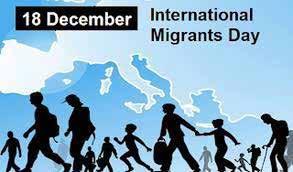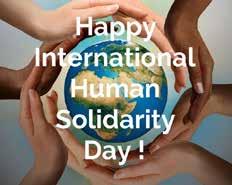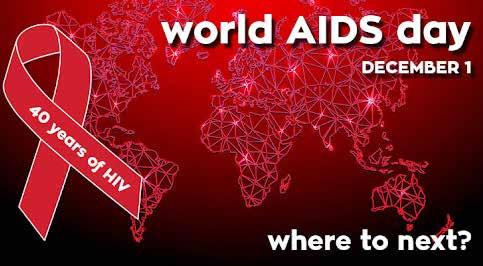
11 minute read
December
INTERNATIONAL DAYS INTERNATIONAL
DAYS DECEMBER
Advertisement
1st December – World Aids Day World AIDS Day is held on 1st December each year. It raises awareness across the world and in the community about HIV (Human Immunodeficiency Virus) and AIDS (Acquired Immunodeficiency Syndrome). It is a day for the community to show their support for people living with HIV and to commemorate people who have died of AIDS related conditions or other conditions associated with HIV. The national World AIDS Day theme for Australia in 2021 is ‘40 years of HIV – where to next?’. World AIDS Day aims to encourage Australians to educate themselves and others about HIV; to take action to reduce the transmission of HIV by promoting prevention strategies; and to ensure that people living with HIV can participate fully in the life of the community, free from stigma and discrimination. 2nd December – International Day for the Abolition of Slavery An estimated 40.3 million people are in modern slavery, including 24.9 in forced labour and 15.4 million in forced marriage. There are 5.4 victims of modern slavery for every 1,000 people in the world with 1 in 4 being children. 16 million people are exploited in the private sector such as in domestic work, construction or agriculture; 4.8 million are in forced sexual exploitation; and 4 million are in forced labour imposed by state authorities. Women and girls are disproportionately affected by forced labour, accounting for 99% of victims in the commercial sex industry, and 58% in other sectors. International Day for the Abolition of Slavery is to eradicate all forms of slavery, such as trafficking in persons, sexual exploitation, the worst forms of child labour, forced marriage, and the forced recruitment of children for use in armed conflict.
3rd December – International Day of Persons with Disabilities International Day of People with Disability is to increase public awareness, understand and accept people with disability and celebrate their achievements and contributions. Each year the UN (United Nations) announces a theme to provide an overarching focus on how society can strive for inclusivity through the removal of physical, technological and attitudinal barriers for people with disability. In Australia, the National Disability Strategy 2010 - 2020 committed all governments to a nationwide reform of inclusion for people with disability and for people with disability to fulfil their potential as equal citizens. In December 2020, Disability Ministers from across Australia issued a statement to inform their continued commitment to this Strategy and to finalise the new National Disability Strategy in 2021.
5th December – World Soil Day World Soil Day is to advocate for healthy live biodiverse soils and the sustainable management of soil resources. It is to ensure soil fertility and thus counter the current threat to global food supplies and food safety. Plants nurture a whole world of creatures in the soil that in return feed and protect the plants. This diverse community of living organisms keeps the soil healthy and fertile. This vast world constitutes soil biodiversity and determines the main biogeochemical processes that make life possible on Earth. 5th December – International Volunteer Day for Economic and Social Development Volunteerism is vital for social, environmental and economic transformation and is underpinned by free will, commitment, equity, engagement, solidarity, compassion, empathy and respect for others. In 2019, there were 8,282 UN volunteers who served in 54 UN missions, agencies, funds and programmes across the world – 29% were less than 29 years of age and 51% were female. 13,186 online volunteers also served virtually worldwide with 33 UN partners in support of 183 civil society organisations that work on peace and development. International Volunteer Day for Economic and Social Development is thus to recognise these actors of change and partners in the attainment of local, national and international progress towards sustainable human development and global peace.
7th December – International Civil Aviation Day The International Civil Aviation network carries over four billion passengers annually (120,000 flights and 12 million passengers a day), supports 65.5 million jobs and contributes US$2.7 trillion to the global economy. International Civil Aviation Day is to recognise the contribution of international civil aviation to global social and economic development and to acknowledge the work of the International Civil Aviation Organization (ICAO) in enabling a global rapid transit network for global peace and prosperity.
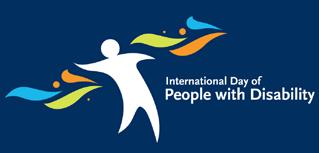

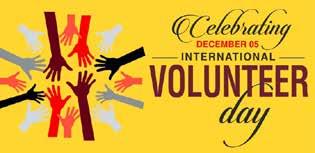

9th December – International Day of Commemoration and Dignity of the Victims of the Crime of Genocide and of the Prevention of this Crime 9th December 2021 marks the International Day of Commemoration and Dignity of the Victims of the Crime of Genocide and of the Prevention of this Crime, as well as the 73rd anniversary of the 1948 Convention on the Prevention and Punishment of the Crime of Genocide (the Genocide Convention), the first human rights treaty adopted by the General Assembly. The Convention signifies the international community’s commitment to “never again” and provides the first international legal definition of “genocide,” widely adopted at national and international levels. It honours the lives of the victims of genocide and establishes a duty for State Parties to prevent and punish the crime of genocide. Article 2 of the Convention defines genocide as any of the following acts committed with intent to destroy, in whole or in part, a national, ethnical, racial or religious group, including: • killing members of the group; • causing serious bodily or mental harm to members of the group; • deliberately inflicting on the group conditions of life calculated to bring about its physical destruction in whole or in part; • imposing measures intended to prevent births within the group; and • forcibly transferring children of the group to another group. The Convention confirms the genocide, whether committed in time of peace or war, is a crime under international law which parties to the Convention undertake to prevent and to punnish (article 1). 9th December – International AntiCorruption Day Corruption is dishonest behavior by those in positions of power and can include giving or accepting bribes or inappropriate gifts, double-dealing, under-thetable transactions, manipulating elections, diverting funds, laundering money, and defrauding investors. Corruption is a complex social, political and economic phenomenon that undermines democratic institutions, slows economic development and contributes to governmental instability. International Anti-Corruption Day is to respect the convention against corruption in combating and preventing corruption, and to offer a time for reflection on how any one of us might be unwittingly supporting corruption.
10th December – Human Rights Day Human Rights Day marks the adoption in 1948 of the Universal Declaration of Human Rights for the inalienable rights which everyone is entitled to as a human being – regardless of race, colour, religion, sex, language, political or other opinion, national or social origin, property, birth or other status. Available in more than 500 languages, it is the most translated document in the world. The rights to which we are all entitled are outlined in the following articles of the Declaration: • Article 1 - Right to equality • Article 2 - Freedom from discrimination • Article 3 - Right to life, liberty, personal security • Article 4 - Freedom from slavery • Article 5 - Freedom from torture and degrading treatment • Article 6 -Right to recognition as a person before the law • Article 7 - Right to equality before the law
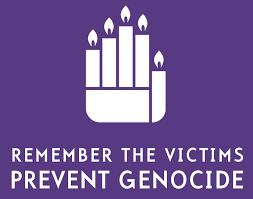
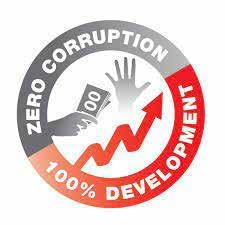
INTERNATIONAL DAYS
• Article 8 - Right to remedy by competent tribunal • Article 9 -Freedom from arbitrary arrest and exile • Article 10 - Right to fair public hearing • Article 11 - Right to be considered innocent until proven guilty • Article 12 - Freedom from interference with privacy, family, home and correspondence • Article 13 - Right to free movement in and out of the country • Article 14 - Right to asylum in other countries from persecution • Article 15 - Right to a nationality and the freedom to change it • Article 16 - Right to marriage and family • Article 17 - Right to own property • Article 18 - Freedom of belief and religion • Article 19 - Freedom of opinion and information • Article 20 - Right of peaceful assembly and association • Article 21 - Right to participate in government and in free elections • Article 22 - Right to social security • Article 23 - Right to desirable work and to join trade unions • Article 24 - Right to rest and leisure • Article 25 - Right to adequate living standard • Article 26 - Right to education • Article 27 - Right to participate in the cultural life of community • Article 28 - Right to a social order that articulates this document • Article 29 - Community duties essential to free and full development • Article 30 - Freedom from state or personal interference in the above rights. 11th December – International Mountain Day Home to 15% of the world´s population, mountains host about half of the world’s biodiversity hotspots and provide freshwater to half of humanity. Of the 20 plant species that supply 80% of the world’s food, six originated and have been diversified in mountains: maize, potatoes, barley, sorghum, tomatoes, and apples. Climate change and overexploitation (unsustainable farming practices, commercial mining, logging, poaching) are seeing mountain people — some of the world’s poorest — struggling to survive, as well as the depletion of freshwater supplies downstream for millions of people. First celebrated in 2003, International Mountain Day (#MountainsMatter) is to acknowledge mountain conservation as key for sustainable development (part of Goal 15 of the SDGs), to celebrate the rich biodiversity of mountains, to adopt sustainable management practices systematically and to address the threats faced by mountains.
18th December – International Migrants Day The observance of International Migrants Day is an opportunity to raise awareness of the contributions of international migrants to both their country of origin and their country of destination. According to the IOM (International Organization for Migration), there are an estimated 272 million people currently living outside their country of origin—approximately 3.5 percent of the world’s population. In 2019, the number of migrants globally reached an estimated 272 million, 51 million more than in 2010. International Migrants Day respects the global compact for safe, orderly and regular migration and enables migrants to ignite economies at home and abroad and build more inclusive and resilient societies. Migration is a courageous expression of an
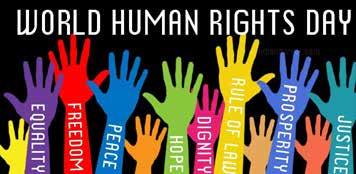
individual’s will to overcome adversity and to live a better life. Mixed with elements of unforeseeability, emergency and complexity, the challenges and difficulties of international migration require enhanced cooperation and collective action among countries and regions.
20th December – International Human Solidarity Day Solidarity, as identified in the Millennium Declaration, is one of the fundamental values of international relations — those who suffer or benefit least deserve help from those who benefit most. In the context of globalization and the challenge of growing inequality, strengthening of international solidarity is indispensable. The Sustainable Development Agenda is centred on people and our planet, underpinned by human rights and supported by a global partnership built on cooperation and solidarity. International Human Solidarity Day is thus to celebrate the unity of our world in diversity, to respect commitments to international agreements, and to strengthen solidarity in achieving the SDG (sustainable development goals). The World Solidarity (trust) Fund gives funds to people with programmes to eradicate poverty and promote human and social development in developing countries, in particular among the poorest segments of their populations. 25th December – Christmas Day Christmas is an annual festival commemorating the birth of Jesus Christ, observed primarily on 25th December as a religious and cultural celebration among billions of people around the world. Many people, even if they are not Christian, give each other gifts, prepare special meals and decorate their homes at this time of year. Many aspects of the Christmas festivities originated from winter celebrations in Europe. However as Christmas Day falls in the middle of summer in Australia, celebrations are increasingly influenced by the Australian climate and wildlife.
26th December – Boxing Day Boxing Day is a holiday in many countries, such as Australia and in the Commonwealth of Nations. It was traditionally a day for employers in England to give bonuses of money, leftover food or old clothing to their employees, or for lords to give agricultural tools and seeds for the coming year to their tenants. These gifts were presented in a box. Some people believe that this is the reason that 26th December is known as Boxing Day. Others think that the origin of the name is related to the box into which parishioners put church donations. In some areas, this box was opened on Boxing Day and the contents were distributed to the poor people of the parish.
